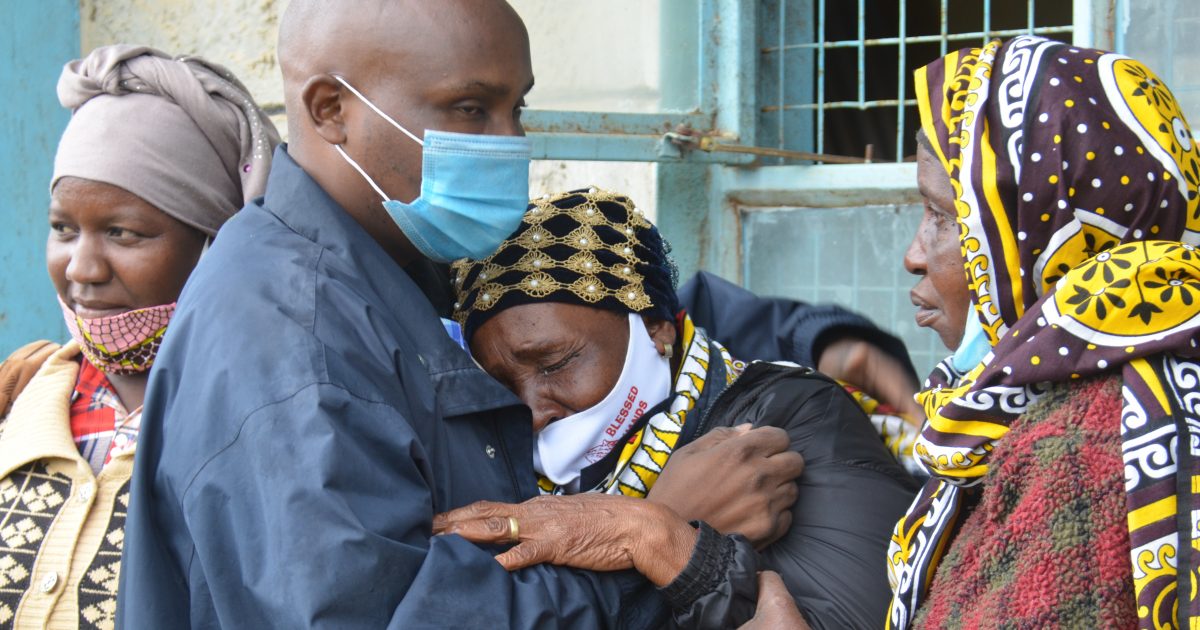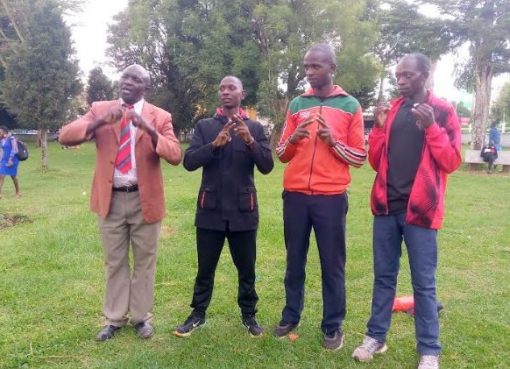When Mr Albert Nyati, 34, walked out of the heavily fortified gates of Manyani Maximum Security Prison in Voi Sub-county on Monday morning, he was a free man. He had served his five-year jail term for manslaughter. He was going back home to the sleepy rural Mwanda village in Wundanyi where his blood-chilling deed on a cold morning in 2017 was spoken about in whispers by shocked villagers.
“It was purely accidental. Not a day passes-by that I do not think about that moment. I wish I had just walked away from it all,” says Mr Nyati, a faraway look in his narrowed eyes. His fingers unconsciously clutch at beads of a cream-coloured rosary dangling from his neck.
His nightmare started with a scuffle with Aaron Lenjo, another bodaboda rider over a passenger. The scuffle escalated into a shoving brawl. In a burst of anger, Nyati pushed a little too hard. Lenjo stumbled over a pavement and fell, smashing the back of his head against the hard concrete surface. Unconscious, the latter was rushed to a nearby health facility where medics declared him dead on arrival.
In 2018, a Wundanyi court found Nyati guilty of manslaughter. He was handed a 30-year jail term and sent to Manyani Maximum Security Prison in Voi sub-county. To languish in prison for 30-years to a 30-year old man with a young family is equivalent to delivering a life-ending blow. Desperate for any reprieve, Nyati lodged an appeal at the High Court and his initial term was reviewed downwards. He would serve five years.
Despite the huge reduction of the years he was initially to serve, his heart remained troubled. His conscience was burdened by the weight of the crime he had committed. That tragic push kept haunting him; tormenting his every waking moment. What he craved above everything else was forgiveness from parents whose son he had killed. He desired to look in their eyes and say he was sorry. He wanted to understand he had not meant to kill their son. Only their forgiveness would set him truly free.
It was this conviction that triggered a delicate months-long process to reach out to the family of late Lenjo.
Mr Bison Madengwa, the County Prisons’ Commander and Officer-in-charge of Manyani Maximum Security Prison admits the process was delicate and fraught with risks owing to the sensitivity of the matter.
He explains that in the rehabilitation programmes, the final step is hinged on successful reintegration of an offender to the community he belongs to. This eliminates stigmatization and allows a reformed offender to have acceptance in the community. This is also a key factor in avoiding re-offense which is common with offenders who have not been properly reintegrated back to the society.
“Our welfare officers linked up with both families through the office of the local administration, pastors and members of clergy. It was a delicate process to prepare the offender to get back to the community once he has served his term,” explains the police boss.
Initially, the two families’ meetings were characterised by great tension, anger and frustration. The talks revived agonising memories of the accidental death that most people wanted forgotten. Painful moments were dredged up; tears of sorrow once buried came back to life. Overarching these feelings was a chilling fact: A life had been lost and would never be restored.
What fitting words can offer solace to a mother who had lost her son in an early morning thoughtless scuffle? How is it even possible to forgive the very man whose strong arms were responsible for taking her son’s life away?
The enormity of the assignment at hand was not lost on the welfare unit of Manyani Maximum Security Prison which was spearheading the reintegration process. Giving up was not an option. The final success depended on their persistence.
Mr Madengwa says reintegration of a person to a society remains key to a successful rehabilitation.
“It is very critical that an offender who is returning to the community he committed a crime in needs be forgiven and accepted. This is the center piece of the entire corrective and rehabilitative system,” he said.
Despite the monumental difficulties, months of constant engagements started yielding fruits. The first signs of progress was softening of the earlier frosty relations between the families. They could now engage without being overwhelmed with anger.
However, one last condition came up. “The family of the victim demanded the offender to personally ask for forgiveness from them in public,” explained Mr Madengwa.
On Monday, Mr.Nyati was released from prison. During his time, he was elected as the chairperson of Manyani Catholic Inmates Association and also the choirmaster. His incarceration had changed him. Though free, he admitted he was not actually free. He had a debt of conscience to pay.
Accompanied by religious leaders and welfare officers from Manyani, Mr Nyati arrived at his home village of Mwanda on a rain-sodden chilly afternoon to emotional scenes as dozens of family members wailed and broke down in tears. Villagers had gathered at a public hall to receive their lost son. In a happy daze, Mr Nyati moved from relative to relative, shaking hands and hugging others.
After the initial excitement, a somber mood engulfed the hall. The moment had come.
Mzee Jonathan Mwaringo, the father of the victim, rose. Small-bodied, frail and old, he walked slowly to the front and turned to face the hall packed with neighbors and relatives who had come to witness this historic event. They all knew his words would determine if the entire process had been in vain.

“I don’t have much to say. I forgave him long ago. I have nothing against him,” mumbled the old man as he slowly walked back to his chair. The hall erupted into cheers of jubilation.
When he rose to speak, an emotional Mr Nyati said he was sorry for what he had done. He asked the community to forgive him and understand he never meant to take a life.
“There are no words to undo what happened. All I am asking is forgiveness. Some might still call me a murderer but I am not one. I never meant for it to happen,” he said.
Mr Wilson Mrombo, a brother to the late Lenjo, said the family had decided to forgive despite the hurts and aches that came from the death of his brother.
“It is hard but we have opted for forgiveness. It is better for all of us,” he said.
Mr Mwaka Muka, Mwanda Location Chief, whose office was at the center of this exercise said the families with the help of local leaders would keep on engaging to remove any vestiges of hurt that might linger.
By Wagema Mwangi



